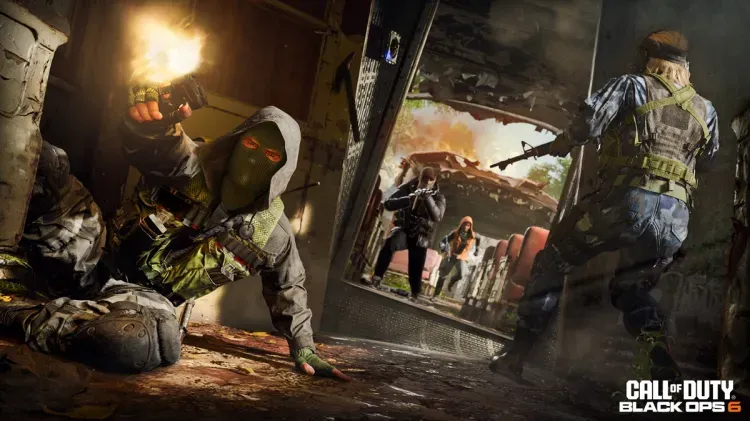Call of Duty's New Anti-Cheat Demands Hardware Security: TPM 2.0 and Secure Boot Now Mandatory
Activision is turning up the heat on cheaters with a controversial new requirement that's sparking heated debates across PC gaming communities. Starting with the latest updates, Call of Duty's RICOCHET Anti-Cheat system will mandate that PC players have TPM 2.0 (Trusted Platform Module) and Secure Boot enabled on their systems—a move that could lock out millions of players while promising a cleaner competitive experience.
The Hardware Security Lockdown
The gaming giant announced that these security features, typically associated with enterprise and high-security environments, are now essential for accessing Call of Duty titles including Modern Warfare III, Warzone, and future releases. Players without compatible hardware or those who have disabled these features will find themselves unable to launch the game.
TPM 2.0 is a dedicated security chip that stores encryption keys and performs cryptographic operations, while Secure Boot ensures only trusted software can run during the system startup process. Together, they create a more secure computing environment that's significantly harder for cheat developers to circumvent.
Why Activision Is Taking This Hardline Approach
The decision comes after years of battling increasingly sophisticated cheating tools that have plagued the Call of Duty franchise. Traditional software-based anti-cheat systems operate at the application level, making them vulnerable to kernel-level cheats and hardware-based exploits. By leveraging TPM 2.0 and Secure Boot, RICOCHET can verify system integrity from the ground up.
"We're implementing these requirements to create a more secure gaming environment," an Activision spokesperson explained. "These hardware security features provide an additional layer of protection that makes it exponentially more difficult for cheat developers to operate undetected."
The move mirrors similar security implementations seen in competitive esports, where tournament organizers often require secure, verified systems to prevent cheating at professional levels.
The Player Backlash and Compatibility Concerns
The gaming community's response has been swift and polarizing. Online forums are flooded with complaints from players whose older systems lack TPM 2.0 support or who deliberately disabled Secure Boot for various reasons, including dual-boot setups with Linux distributions.
According to Steam's hardware survey data, approximately 15-20% of PC gamers may be running systems that either lack TPM 2.0 or have it disabled. For many players with budget builds or older hardware, upgrading isn't financially feasible, especially considering current component prices.
"I've been playing Call of Duty for over a decade, and now I'm locked out because my 2018 gaming rig doesn't have TPM 2.0," posted Reddit user GamingVet47. "This feels like planned obsolescence disguised as anti-cheat measures."
Technical Implications and Workarounds
Enabling these features isn't always straightforward. Many motherboards ship with TPM disabled by default, and enabling Secure Boot can cause complications for users running multiple operating systems or custom boot configurations. Some players report stability issues after enabling these features, particularly on older hardware.
However, most systems manufactured after 2016 include TPM 2.0 capability, even if it's not activated. Microsoft's requirement for TPM 2.0 in Windows 11 has also pushed hardware manufacturers to include these chips in virtually all new systems.
Industry Implications and Future Outlook
Activision's move could signal a broader industry shift toward hardware-based security requirements. Other major publishers are watching closely, as the success or failure of this implementation could influence anti-cheat strategies across the gaming industry.
Valve's Steam Deck and other Linux-based gaming platforms present additional complications, as Secure Boot implementation varies widely across these systems. This could potentially fragment the PC gaming market along security requirement lines.
The Bottom Line: Security vs. Accessibility
While Activision's hardware security requirements represent a significant escalation in the anti-cheat arms race, they also raise important questions about accessibility and player inclusion. The company is betting that the promise of a cheat-free gaming environment will outweigh the frustration of players locked out by hardware requirements.
For affected players, the choice is clear: upgrade hardware, enable the required security features, or find alternative gaming experiences. As this policy takes full effect, its success will ultimately be measured not just in reduced cheating incidents, but in whether the Call of Duty community accepts this new barrier to entry in exchange for competitive integrity.
The gaming industry will be watching closely to see if hardware-based anti-cheat becomes the new standard—or if player pushback forces a reconsideration of this controversial approach.
